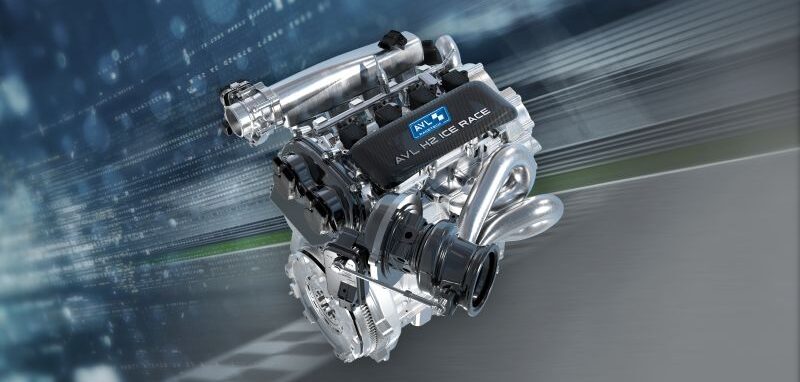AVL Racetech, the motorsport department of AVL, has presented a hydrogen-fueled internal combustion engine prototype. Based on a 2-liter turbo engine, it is equipped with what the company calls intelligent water injection, which enables it to achieve high performance levels. The prototype is the first racing engine that AVL Racetech has developed and built in-house (although the department has been responsible in one way or another for many confidential race engine development projects over the years).
Unlike other hydrogen internal combustion engines, which are usually operated with a high level of excess air (lean burn), meaning they generate comparatively less performance, AVL’s new racing engine uses only slight lean burn and nets a performance level of around 150kW per liter.
Project manager Paul Kapus, AVL’s manager of development for spark-ignited engines and concept cars, said, “Realizing performance values at motorsport level with a hydrogen internal combustion engine is an incredibly complex technical challenge. But our prototype proves it can be done. The basic technology of a gasoline engine and a hydrogen combustion engine is very similar – in contrast to fuel cell technology – which is why our concept is also a very good fit for the economical approach of customer racing, since the adaptations required are very straightforward.”
To achieve the engine’s high specific performance, AVL turned to water injection, a technique first pioneered on boosted aero engines in World War II. An injector shoots additional water into the intake stream, increasing the charge density. In addition, the water evaporates, providing a substantial cooling effect in the combustion chamber. AVL notes that designing the necessary injectors and valves required a precise understanding of the overall system behavior with all air, fuel and exhaust gas flows, for which the company used its well-proven simulation models and 3D flow calculations.
Ellen Lohr, director of motorsport at AVL, concluded, “We are forerunners in many aspects of motorsport with AVL Racetech and have now made the decision to become leaders in the area of hydrogen combustion engines as well, which is why we are building our own racing engine for the first time in the more than 20-year history of the AVL motorsport department. We expect to be able to present this hydrogen engine in spring 2023 and are confident that hydrogen combustion technology will play a significant role in achieving a zero-carbon future in motorsport.”



